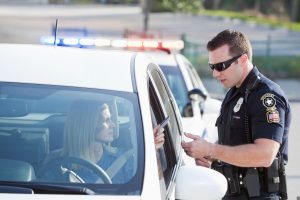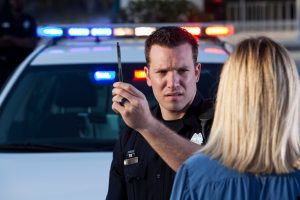Driving under the influence (DUI) is already a serious offense in Fort Lauderdale. But when a minor is in the vehicle, the consequences become far more severe. Prosecutors in Fort Lauderdale and across Florida aggressively pursue these cases, often seeking enhanced penalties and additional charges beyond a standard DUI. The presence of a minor in the car suggests an increased risk to public safety, making the offense more likely to be prosecuted to the fullest extent of the law.
For those facing DUI with a minor in the car, it is crucial to understand how Florida law handles these cases, what additional penalties you could face, and how a skilled Fort Lauderdale DUI criminal defense lawyer can help protect your rights.
Florida Laws on DUI With a Minor in the Car
Florida’s DUI Statute – F.S. 316.193
Under Florida Statute 316.193, a person commits DUI if they:
- Operate or are in actual physical control of a vehicle while under the influence of alcohol or drugs to the extent that their normal faculties are impaired, OR
- Have a blood alcohol concentration (BAC) of 0.08% or higher.
For a first-time DUI offense, penalties typically include fines, probation, community service, a license suspension, and potentially jail time. However, when a minor (anyone under 18) is in the vehicle at the time of the arrest, enhanced penalties apply.
Enhanced Penalties for DUI With a Minor in the Car
Florida law specifically enhances DUI penalties under F.S. 316.193(4) when a child is present in the vehicle. If convicted:
-
The fine is doubled:
- First offense: Minimum $1,000 fine (instead of $500).
- Second offense: Minimum $2,000 fine (instead of $1,000).
- Third offense (within 10 years): Felony DUI, carrying up to five years in prison.
-
Increased jail time:
- A mandatory sentence of up to 9 months for a first offense (instead of 6 months).
- A second offense carries up to 12 months in jail.
-
Mandatory ignition interlock device (IID) for at least 6 months.
-
Additional probation and community service requirements.
In severe cases—such as when the DUI results in an accident, injury, or reckless driving—prosecutors may pursue felony charges under Florida’s aggravated DUI laws.
Does Having Multiple Minors in the Car Make a Difference?
Yes. If multiple minors are in the vehicle, the prosecution may argue that each child is a separate victim, potentially leading to multiple counts of DUI child endangerment. Additionally, the totality of circumstances—such as the children’s ages, road conditions, and the driver’s BAC level—can influence sentencing. In some cases, having multiple minors in the car can elevate the offense to a felony rather than a misdemeanor.
Additional Non-Criminal Consequences
A conviction for DUI with a minor in the car can have life-changing consequences beyond criminal penalties. These include:
Child Custody and Family Law Implications
If you are involved in a child custody dispute, a DUI with a minor in the vehicle can be used against you in family court.
Under Florida law, judges make custody decisions based on the best interests of the child (F.S. 61.13). A DUI conviction involving a minor can be viewed as child endangerment, potentially leading to:
- Loss of custody or visitation rights
- Supervised visitation orders
- Parental fitness evaluations
In severe cases, the Florida Department of Children and Families (DCF) may even initiate an investigation, which could result in temporary or permanent loss of parental rights.
Professional and Employment Consequences
Many employers conduct background checks, and a DUI conviction—especially one involving child endangerment—can result in job loss, particularly for individuals in:
- Education and childcare
- Healthcare
- Commercial driving
- Law enforcement or government positions
Additionally, professional licensing boards may revoke or suspend a person’s ability to practice in certain fields, such as medicine, law, and aviation.
Auto Insurance Rate Increases
A DUI conviction will result in a dramatic increase in auto insurance premiums, often by hundreds or even thousands of dollars per year. Some insurance providers may cancel your policy altogether after a conviction involving DUI with a minor in the car.
 Fort Lauderdale Criminal Attorney Blog
Fort Lauderdale Criminal Attorney Blog












